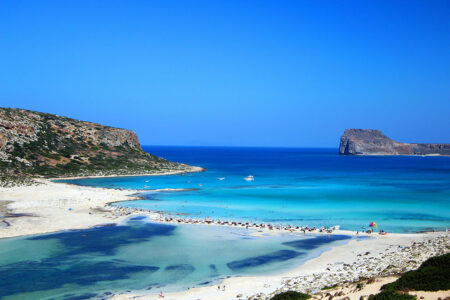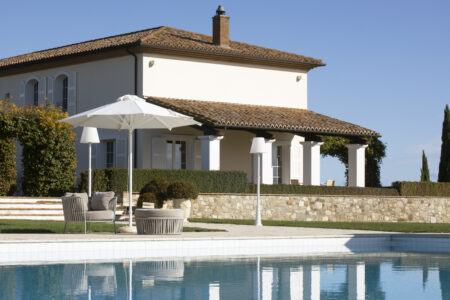Ultimate Guide: Things to Do in Chania Crete for a Pure Cretan Experience
- May 28, 2024
- Rentals
Chania built on the area of Minoan Kidonia, with a history which spans from the Minoan era to the modern times, with influences from Romans, Byzantines, Venetians, and Ottomans. The cityscape is a blend of ancient and modern, with the old town’s Venetian port, the Grand Arsenal, Kum Kapi, and Halepa, contrasting with the modern city’s bustling life.
From the mesmerizing beauty of its beaches and gorges to the historic charm of its ancient monasteries and quaint villages, Chania invites travelers to explore its many facets. For those eager to delve into the heart of Crete, discovering the myriad of things to do in Chania Crete becomes not just an activity, but a journey through time, taste, and tradition. Here, every path leads to a new discovery, from hidden gems tucked away in the mountainous terrain to the lively festivals that showcase the true spirit of Cretan hospitality.
This guide aims to navigate you through the enchanting beauty of Chania’s diverse landscapes, the rich tapestry of its cultural heritage, and the irresistible flavors of its famed gastronomy. Prepare to be introduced to the best things to do in Chania, Crete, from hiking through majestic gorges to indulging in luxury tailor-made villa experiences that promise a stay as unique as the island itself.
Whether you’re drawn to the thrill of adventure, the pursuit of leisure, or the deep dive into Chania’s history and arts, this guide promises to equip you with everything you need for a truly unforgettable Cretan adventure.
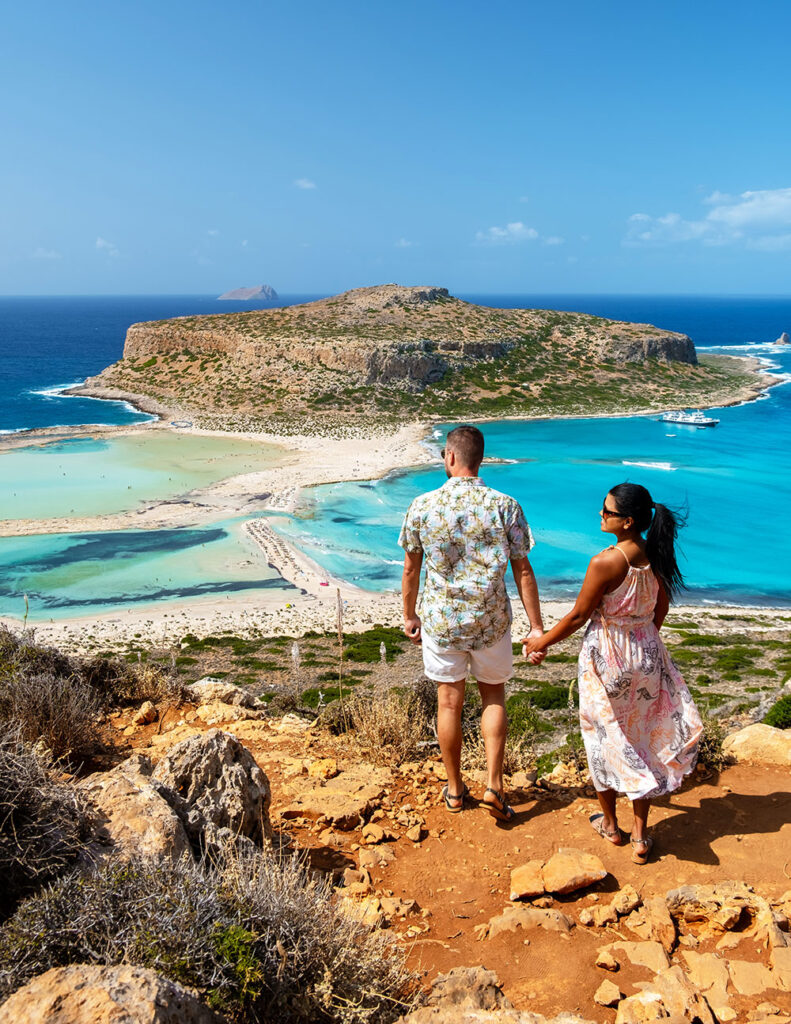
Exploring the Enchanting Beauty of Chania’s Landscape
Discovering the Venetian Harbor
Chania’s Venetian Harbor, a picturesque gem on the island of Crete, is a must-visit destination that transports visitors back in time. With its charming waterfront promenade lined with vibrant cafes, the harbor offers a bustling yet serene atmosphere. The colorful buildings and quaint waterfront are remnants of Venetian rule, providing a perfect backdrop for leisurely strolls and dining experiences. Visitors can enjoy a breakfast of Greek yogurt and fruit at the port, or a sunset cocktail, absorbing the lively yet historical ambiance that defines this iconic harbor.
Hiking Through the Samaria Gorge
One of Europe’s longest canyons, the Samaria Gorge, offers an unforgettable adventure through Crete’s rugged natural beauty. The hike begins at the Xyloskalo trailhead at an altitude of 1,250 meters and descends through a breathtaking landscape of towering cliffs and lush vegetation. Hikers are treated to a variety of flora and fauna, including the rare kri-kri, a cliff-climbing species of ibex. The trail, enriched with historical remnants like the tiny Agios Nikolaos chapel, winds down to the Libyan Sea, culminating in the serene coastal village of Agia Roumeli. This challenging yet rewarding trek is a highlight for nature lovers and adventure seekers visiting Chania.
Unmatched Beauty of Elafonissi Beach
Elafonissi Beach, renowned for its striking pink-hued sand and crystal-clear turquoise waters, is a natural wonder that leaves a lasting impression. The beach is part of an island separated from the southwest coast of Crete by a shallow, warm lagoon, allowing visitors to wade out to the island along a submerged sandbar. This area, an internationally classified nature reserve, boasts a unique ecosystem with rare plants and wildlife, including the summer sea daffodils and the endangered loggerhead sea turtles. Visitors can explore the soft, powdery sand and enjoy the warm, shallow waters, making Elafonissi a perfect destination for families and windsurfers alike. The beach’s vast expanse ensures that everyone can find a spot to relax and soak in the sun, making it a must-visit for those exploring Chania’s landscape.
The Rich Cultural Tapestry of Chania
Chania, a city on the island of Crete, Greece, is celebrated for its rich cultural heritage, stunning natural beauty, and the picturesque charm of its old town. The area’s cultural tapestry is woven with the threads of history, traditional crafts, and culinary excellence, offering visitors a deep dive into the authentic Cretan experience.
Experiencing Traditional Cretan Villages
The traditional villages of Crete, such as Gavalochori, Kandanos, and Vamos, offer a glimpse into the island’s rich cultural heritage. These villages, known for their well-preserved architecture and local crafts, allow visitors to immerse themselves in Cretan culture. Gavalochori, a historical settlement, is notable for its folk architecture. Kandanos, surrounded by lush vegetation, is considered an open-air museum of Byzantine iconography due to its medieval churches. Vamos, while close to popular destinations, has maintained its authentic Cretan character, untouched by tourism. These villages provide a unique opportunity to experience the traditional Cretan way of life.
Learning Local Crafts and Culinary Practices
Crete is renowned for its artisanal crafts and culinary practices, with many villages specializing in pottery, weaving, and woodcarving. Visitors have the chance to learn about these traditional crafts, often demonstrated in local workshops. The culinary practices of Crete, celebrated for the use of fresh, local ingredients, are a cornerstone of the Mediterranean diet. Traditional Cretan cooking lessons, offered in settings like a family’s olive farm, teach the preparation of dishes such as oven-roasted lamb, stuffed vegetables, and kalitsounia, allowing visitors to delve into the flavors that define Cretan cuisine.
The rich cultural tapestry of Chania, woven through its historical sites, traditional villages, and the preservation of crafts and culinary practices, offers a deep and enriching experience. Visitors leave with not only memories of stunning landscapes and architectural wonders but also an appreciation for the enduring spirit of Cretan culture.
Savoring the Flavors of Chania
Sampling Local Delicacies and Cuisine
Chania’s Old Town is a treasure trove for food enthusiasts, with its labyrinth of narrow streets and vibrant squares hosting an array of tavernas, cafes, and specialty food shops. Here, visitors can immerse themselves in the rich culinary heritage of Crete, sampling traditional dishes that have been passed down through generations. The local markets are a feast for the senses, offering fresh seafood, locally-grown produce, and a variety of Cretan specialties. Among the must-try dishes are dakos, a refreshing salad, moussaka, a rich casserole of eggplant and ground meat, and freshly grilled fish that captures the essence of the Mediterranean. Skioufihta, Gamopilafo, Apaki are also some of the local dishes that you shall not miss.
Wine and Olive Oil Tasting Experiences
Chania, a hub for wine and olive oil production, invites visitors to delve into the world of Cretan viticulture and olive cultivation. Through engaging tours and tastings, one can discover the meticulous processes behind the production of these staple commodities. The experience at Biolea, an organic olive oil production facility, offers insight into the traditional methods of stone-milling and cold-pressing olive oil. Meanwhile, wineries like Anoskeli and Manousakis showcase the innovation and diversity of Cretan wines, from indigenous varietals to international blends. These tasting experiences not only highlight the quality of Cretan products but also the deep-rooted connection between the land and its people.
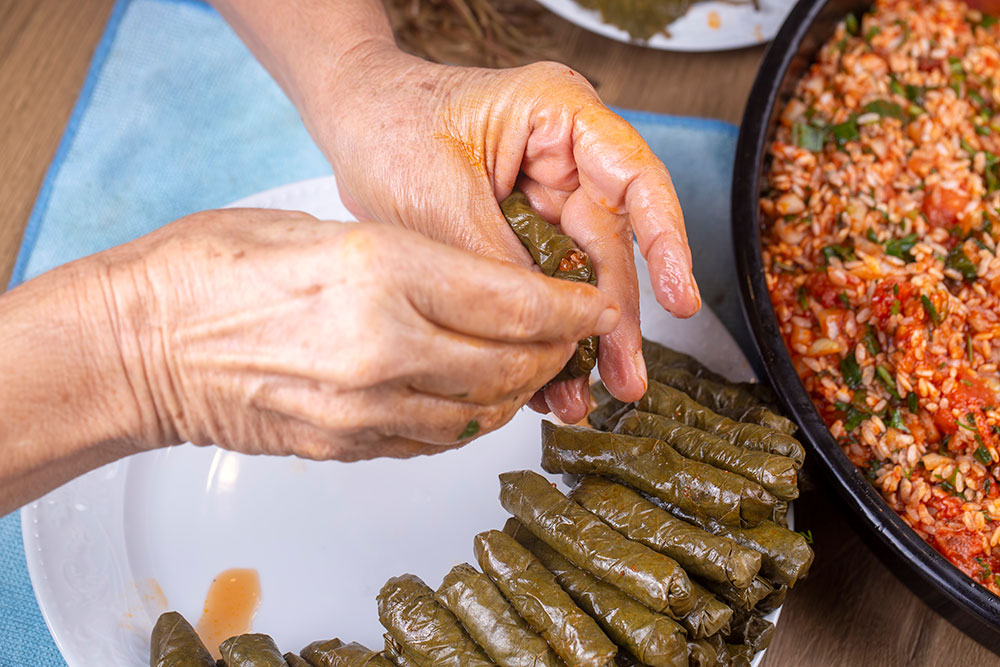
Must-try Traditional Cretan Cooking Classes
For those looking to dive deeper into the culinary world of Crete, participating in a traditional Cretan cooking class is an unparalleled experience. Set in picturesque locations, these classes offer hands-on instruction in preparing classic Cretan dishes using fresh, locally-produced ingredients. From learning the art of sourdough bread making to preparing a feast of stuffed vine leaves and lamb cooked in a stone oven, participants gain valuable insights into Cretan cuisine. The classes, often hosted by local families, provide not only culinary education but also a warm introduction to Cretan hospitality and culture.
Adventure and Leisure in Chania
Chania, a city that marbles with Venetian harbors, narrow streets, and a historical architecture that tells tales of many civilizations, is not just a feast for the eyes but also a playground for adventure and leisure. The city’s Old Town, a canvas of Venetian-era buildings, narrow alleys, and a bustling waterfront promenade, invites visitors to immerse themselves in a blend of history and relaxation. Here, the adventure is not just in the exploration of its streets but also in the variety of activities that Chania offers, from water sports to leisurely boat excursions and the exploration of historical monuments and architecture.
Partaking in Water Sports and Beach Activities
Chania’s reputation as one of Greece’s most popular holiday destinations is well-earned, with its legendary beaches and a full range of water sports options for all ages and levels of experience. The city’s beaches, such as Agia Marina, Platanias, and the exotic Elafonisi, offer everything from the thrill of parasailing and windsurfing to the joy of a simple swim in the azure waters. For those seeking the adrenaline rush of water skiing or the laughter that comes with being towed behind an inflatable tube, Chania’s beaches are the perfect destination.
Snorkeling and Boat Excursions
The clear waters surrounding Chania are not just for swimming; they are a gateway to exploring the vibrant marine life through snorkeling and boat excursions. The coastline and nearby islands, accessible by boat, offer a unique perspective of Crete’s natural beauty and historical sites. Diving centers located at Platanias and Nea Hora beaches provide well-equipped facilities for those looking to dive deeper into the underwater world. For a more serene experience, hiring a SUP, sea bike, or canoe allows for gentle exploration around the coastline, with beaches like Balos and Marathi offering calm waters ideal for kids and beginners.
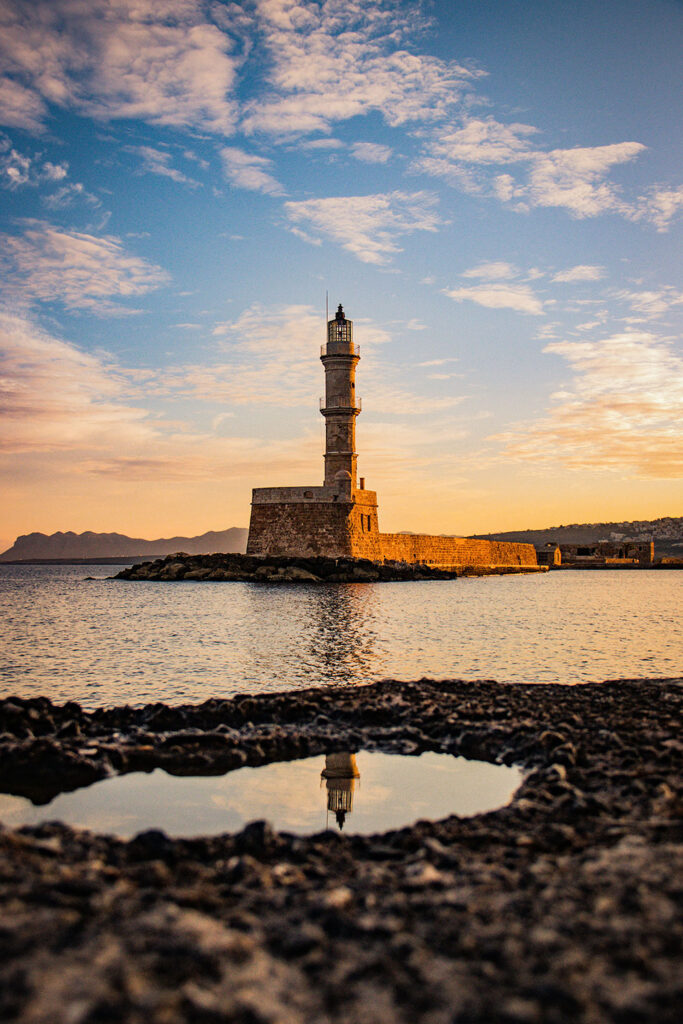
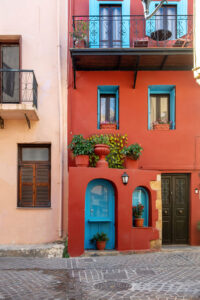
Exploring Chania’s Historical Monuments and Architecture
Chania’s history, spanning over 4,000 years, is evident in its architecture and monuments. The city’s Old Town and the Venetian Harbour have been the heart of Chania for centuries, with every corner revealing fascinating treasures. Iconic landmarks such as the Egyptian Lighthouse, The Venetian Arsenalia, and the Mosque of Kioutsouk Hassan invite visitors to embark on a journey through time. Beyond the Byzantine Walls, the modern part of the city and the rural municipality of Chania continue to tell the story of this land’s rich and diverse history through ancient cities, Venetian and Ottoman fortresses, and historic locations.
Luxury tailor made villa vacations
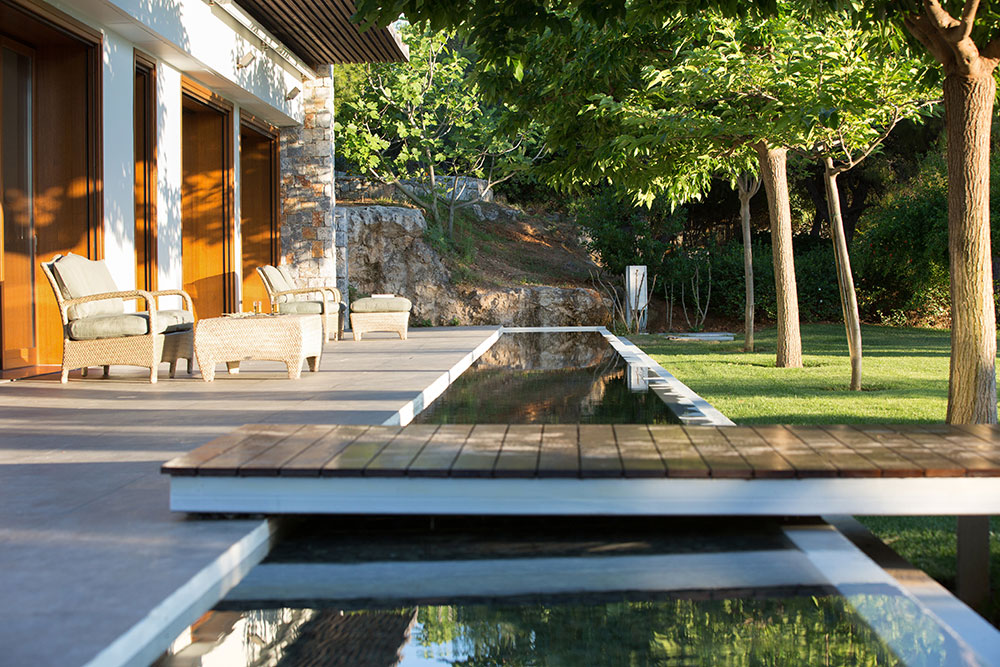
Moreover, Chania is an ideal location for villa stays tailored to your preferences. There are several exquisite villas operated by Siel experience that combine luxury with tradition in a unique natural environment.

For instance, the Villa Terra. Located in a spectacular natural location in Crete, featuring state of the art architectural design and breathtaking views of the picturesque Venetian Harbour, the Aegean Sea and the awesome Cretan «White Mountains», is a safe haven for the body, the mind and the soul. Here, indoor – outdoor living and seasons transcend gracefully, so you can enjoy your vacation throughout the year, in a private and safe environment, featuring all modern amenities of a five- star resort.
Or the Villa over Almyrida Bay in the Apokoronas area. The perfect location of this Villa lets you enjoy the fascinating view that opens up to you across the entire Souda Bay. The villa’s architecture seamlessly blends modern design with traditional elements specific to Greek islands.
Siel while guarantees an unforgettable stay in Chania, creates tailor made experiences.
Conclusion
As we journeyed through the enchanting landscapes, the rich cultural tapestry, the mouthwatering flavors, and the thrilling adventures Chania has to offer, it’s clear that this Cretan gem promises an experience like no other. From the awe-inspiring beauty of its beaches and gorges to the immersive exploration of its historical and cultural heritage, Chania holds the essence of a deeply profound Cretan experience. Each path taken, from the serene walks along the Venetian Harbor to the adrenaline-fueled adventures through the Samaria Gorge or across the vibrant turquoise waters, enriches one’s spirit with the pure essence of Crete.
Reflecting on the journey, the significance of Chania not only lies in its captivating beauty and the adventure it offers but in the warmth of its people and the depth of its culture. These experiences, woven together, form a canvas of memories that resonate with the soul, urging a return to this land of timeless beauty and tradition. As readers, embarking on this journey through the narrative, the hope is to inspire not only an appreciation for Chania’s unique charm but to ignite a desire to experience firsthand the heart and spirit of Crete.




